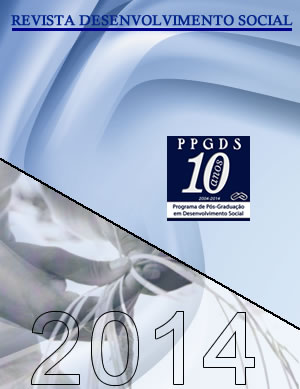REGIONAL ENVIRONMENTAL CONFLICTS IN THE NATIONAL PARK SERRA of CIPÓ
Keywords:
Political Ecology, Deterritorialization, Traditional Communities, Environmental ConflictAbstract
The National Park of Serra do Cipo - PNSCi, located in the southern Serra do
Espinhaço, is considered one of the natural settings of great national tourist
attractiveness and internacionalmente.É a privileged social space of the researchers,
which has a base in preservationism that guides their actions in the environmental field.
Created in 1975, while State Park in 1984 was recategorized as a National Park. This
process was marked by the expropriation of several traditional family groups that kept
the place forms of communal ownership, and family environment. This paper presents
this process of expropriation emphasizing that currently can be understood as a second
cycle of expropriation. A reconfiguration of environmental conflict reatualizado in 2013
with the last six traditional family groups resistant community Retiro. Current conflict
shows overlapping claims between the various traditional groups, with different
identities and cultural logics, and ICMBio on the same spatial area. This present study
aims to understand the process of deterritorialization in its first cycle, performed at the
time of implementation of PNSCi, the update of this process in its second cycle in
Retiro and understand the meaning of territorial park for each sujeito. To that end, we
conducted literature search, semi-structured interviews and mental map.
Downloads
Downloads
Published
How to Cite
Issue
Section
License
Copyright (c) 2014 Revista Desenvolvimento Social

This work is licensed under a Creative Commons Attribution-NonCommercial-NoDerivatives 4.0 International License.
Esta licença permite que outros(as) façam download do trabalho e o compartilhe desde que atribuam crédito ao autor(a), mas sem que possam alterá-lo de nenhuma forma ou utilizá-lo para fins comerciais.












.png)
.png)




.png)









